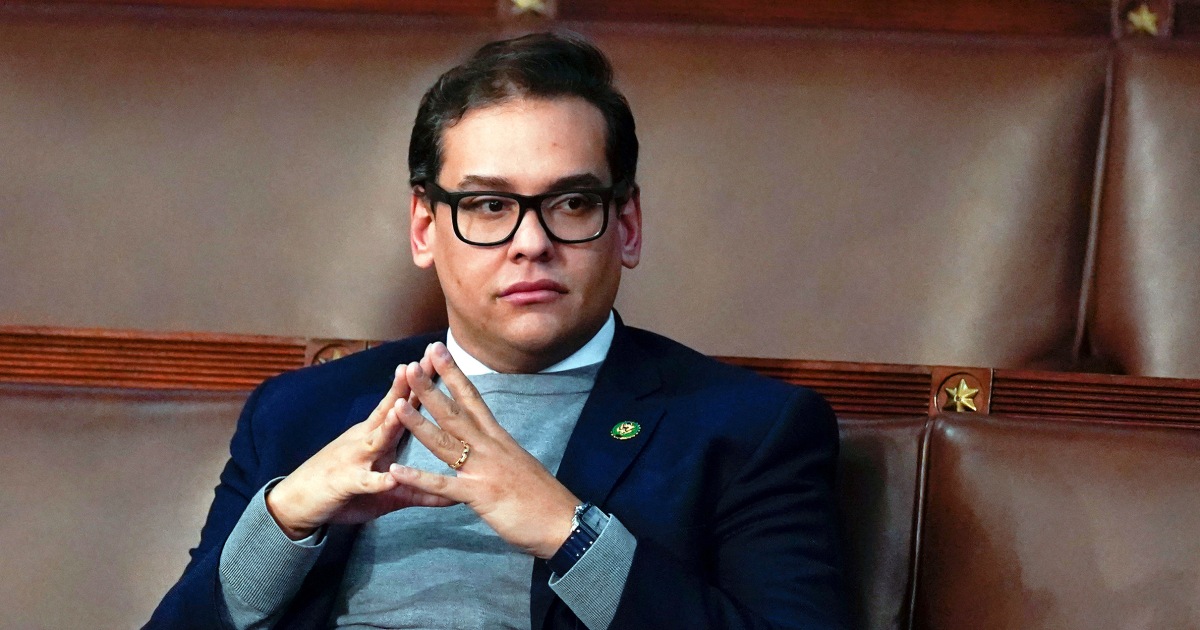Judges showed some frustration this week with how the Trump administration has been defending itself in court, with one saying it appeared to have used "bad faith" tactics, another accusing it of using "disingenuous" arguments and a third saying it was making "inaccurate" claims.
One of the judges, U.S. District Judge James Boasberg, suggested he might hold contempt proceedings to hold the government to account for failing to comply with his orders.
In a separate but related case, a federal judge in Maryland on Friday ordered the government to return a deportee it acknowledged was accidentally sent to a notorious megajail in El Salvador.
Here's a look at some of the biggest legal developments of the week:
'The government acted in bad faith'
At a hearing Thursday, Boasberg demanded detailed answers about the administration's failure to comply with his order halting deportations under President Donald Trump's invocation of the rarely used Alien Enemies Act.
He didn't get them.
After Deputy Assistant Attorney General for Immigration Drew Ensign told him "it is our position that the actions of the government complied" with his two restraining orders barring alleged Venezuelan gang members from being flown out of the country on March 15, the judge let his frustration show.
"OK. So it seems to me that there is a fair likelihood that that is not correct, and in fact, that the government acted in bad faith throughout that day," Boasberg said.
"If you really believed everything you did that day was legal and could survive a court challenge, I can't believe you ever would have operated in the way you did," he added.
He also referenced the deportation of a Maryland man who the administration acknowledged was mistakenly sent to El Salvador.
"So what you were willing to do by trying to do this as quickly as possible and avoid being enjoined by the court was to risk putting people on those planes who shouldn’t have been on the planes in the first place," Boasberg said later in the hearing.
The judge noted that Trump had signed the AEA on Friday, March 14, but didn't make it public until Saturday afternoon, when preparations to ship the deportees to a prison in El Salvador were already underway.
He suggested the timing was intentional, so the deportees could be "removed from the country before it was possible to challenge it legally."
Ensign said, "I don't have any information on that."
The lawyers for the plaintiffs, who all deny that they're members of the gang, got wind of the executive order on March 14 and filed suit overnight to block the deportations. Boasberg ordered an emergency hearing for that Saturday afternoon.
During that hearing, the judge ordered any deportations under the AEA to be temporarily halted, and directed that any flights that were underway be returned to the U.S. Ensign said at the time he was not aware of any, a position he reiterated Thursday.
“I had no knowledge from my client that was the case,” Ensign said, and “I made diligent efforts to obtain that information” from the Department of Homeland Security and the State Department.
It was later revealed that two such flights were in the air at the time. The government has refused to release details on the exact timing, labeling it a "state secret." The Justice Department lawyers claimed the flights were out of U.S. airspace at the time, and therefore didn't have to return.
Boasberg pressed Ensign on who made the decision not to turn the planes around. "I don't know that," Ensign replied.
"I'm certainly interested in finding that out because as we proceed with potential contempt proceedings, that may become relevant," the judge said.
He said he'll likely issue an order on whether there's probable cause to find the government in contempt next week.
At an unrelated news conference Friday, U.S. Attorney General Pam Bondi was asked if she "was involved in the decision to defy" Boasberg's order.
"I don’t think anyone defied an order by a judge. That’s pending in court right now," she said.
On Tuesday, the parties will be back before Boasberg for arguments on the heart of the issue in the case — whether the Trump administration should be enjoined indefinitely from deporting alleged Tren de Aragua members under the AEA.
The administration has already appealed his current restraining order to the U.S. Supreme Court, alleging it infringes on the president's powers.
Judge rules in favor of Maryland man deported to El Salvador
U.S. District Judge Paula Xinis on Friday ordered Kilmar Abrego Garcia, who is a legal resident of Maryland, to be returned to the U.S. by Monday after a Justice Department lawyer acknowledged he should not have been sent to El Salvador.
An immigration judge had specifically barred Garcia, who the government alleges is an MS-13 gang member, from being sent to El Salvador back in 2019, finding it "more likely than not that he would be persecuted" there.
Xinis asked Justice Department attorney Erez Reuveni why the administration couldn't ask El Salvador to return Garcia. Reuveni said he'd asked his client the same thing, and, “I have not yet received an answer that I find satisfactory.”
Reuveni also said he did not know why Garcia had been arrested, how it was determined he would be sent to El Salvador or any details about the administration's deal with the prison there.
“The government made a choice here to produce no evidence,” he said.
'Disingenuous' arguments in a California case
A federal judge in California on Monday issued an order temporarily blocking the Trump administration from ending Temporary Protected Status for over 350,000 Venezuelan nationals.
U.S. District Judge Edward Chen said the plaintiffs in the case are likely to succeed with their claims that Homeland Security Secretary Kristi Noem's "unprecedented" decision to bring an early end to their TPS protections — which allow them to live and work in the U.S. — is "unauthorized by law, arbitrary and capricious, and motivated by unconstitutional animus."
Noem had directed the TPS protections, which had been scheduled to expire late next year, to be terminated on April 7.
The administration is appealing Chen's decision and separately asked him to stay his own ruling, arguing in part that ending the protections doesn't mean they'll be deported.
"[T]hat is a disingenuous argument," Chen wrote Friday, rejecting the administration's request for a stay.
He noted that during an interview where she announced the decision, Noem said the “people of this country want these dirtbags out.”
He said the "entire point" of Noem's early termination decision "was to enable the removal of Venezuelan TPS holders on a schedule well in advance of the schedule set" by her predecessor, Alejandro Mayorkas.
"Nor has the government stated that, if the Court were to stay its postponement order, it will not immediately move forward with the removal of any Venezuelan TPS holder," Chen added.
He pointed to the administration's acknowledgement in the AEA case that one of the deportees shouldn't have been removed as another reason not to pause his ruling.
The "government mistakenly deported an individual, who has legal status to be in the United States, to El Salvador but has essentially taken the position that it cannot do anything to address that mistake," the judge wrote, showing any removal in his case "likely could not be 'undone' should Plaintiffs ultimately prevail."
'Inaccurate' claims
The Justice Department also sought a stay from a federal judge in Washington, D.C., asking her to pause her preliminary injunction barring the administration from shuttering the Consumer Financial Protection Bureau.
U.S. District Judge Amy Berman Jackson's March 28 decision granting the injunction included some harsh words for the administration, finding its claims it wasn't trying to close the agency "unreliable."
The government's "eleventh hour attempt to suggest immediately before the hearing that the stop work order was not really a stop work order at all was so disingenuous that the Court is left with little confidence that the defense can be trusted to tell the truth about anything," Jackson wrote then.
She was similarly unimpressed Thursday with its arguments for a stay of her order.
"[T]heir description of the Order is at odds with the terms of the Order, and their description of the ruling that prompted it is inaccurate as well," she wrote, denying the request.
That same day, the 4th U.S. Circuit Court of Appeals granted the government a partial temporary stay of the order.
"The purpose of this administrative stay is to give the court sufficient opportunity to consider the emergency motion for stay pending appeal and should not be construed in any way as a ruling on the merits of that motion," the ruling said.
Michael Kosnar
contributed
.
.png)
 5 hours ago
2
5 hours ago
2









 English (US) ·
English (US) ·